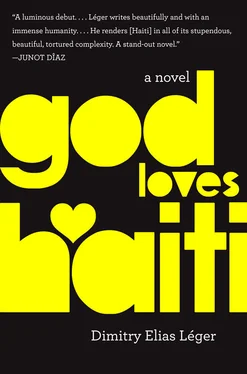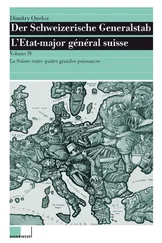Good for nothing as I am, I think I can help you put together a great memorial. After all, spectacle is my forte. You guys are pretty ahead of the curve by thinking of this project this soon during the crisis. I think it’s a terrific idea.
All right then, Alain said. Thank you. Everybody, this is Steve. Thanks also for choosing to help our community, Steve. We know you could be anywhere in the world but here. We’re grateful for that. So… what’s your name again?
Alyssa, said the girl.
Alyssa, do you have a particular type of memorial in mind? Across the Champ de Mars, there already exists a hideous tower bequeathed to us by an otherwise smart past president. Our memorial has to have two phases: one we could set up a quick and interesting foundation for in the short term, and another for long-term construction.
I don’t know, Alyssa said. I like statues.
Good idea, Alain said. We all like statues, I think. Is there a sculptor around?
How about a beam of light like New York City did on the site of the twin towers? a boy named Gilbert said.
How about fireworks? another kid said.
Oy vey, Alain thought. This is going to take a while.
No, no, we should create something using the cheapest and most available material around us, a busty woman said.
Like what? Gilbert said. Mud?
Well, yes, the woman said.
Man, she had canons, Alain thought. Sweat from the scalding midday heat drenched them. They glistened. We should build a statue as a tribute to them, Alain thought. You could hold an entire nation happily aloft on them shits.
Mud! Hollywood said, snapping his fingers. That’s a great idea! I once saw a piece, I don’t remember where, Art Basel Miami or in Basel. It was a giant swan made of mud. It was great, soaring even. Very inspiring. It looked like chocolate and did not fall apart at all. Show of hands: Who can sculpt? A dozen hands went up.
Really? Alain thought. That many of y’all can sculpt? Jesus, you people are so easy to underestimate.
Good, good, Hollywood said. He was excited. Hey — Philippe, is it? Why don’t you lead our little team of sculptors and visionaries on a walk around the park, so we can find a suitable location for the memorial?
If I may, I would suggest you explore a location somewhere along the fence facing Avenue de la République. It’s the street with the most traffic, thus the memorial would get the most attention.
Good idea! Hollywood said, as if genuinely surprised Alain could have one of those or care enough to share it.
The idea of a memorial, a thing that would honor their dead and express their collective vision and hope for their future, a concept heretofore alien and even absurd to the most ardent dreamers among them, energized the small community of walking wounded survivors in Place Pigeon like nothing else, not even the occasional food distribution by the United Nations. Even Alain was swept up in the moment and the emotion and visions of that heart-pumping thing called a future, a better tomorrow. Buoyed, he stood on his crutches and watched Alyssa and Philippe and Steve’s merry band walk off to peruse the camp’s perimeter under the cheer of passing doves and golden sunlight. A place to plant their symbol of the future! Who’da thunk it! A future. We could have one. We were entitled to one. Ah, from the mouth of babes. The fresh wave of positive thinking of a future made of ideas of community, peace, and love and cheer, and not just plentiful food and medicine and schools and life in a city without debris had a cooling effect on Alain, wiping away the sweat on his brow and dramatically increasing his sense of fellowship with his fellow men and women. Around him everyone felt that way. They were all thinking the same thing: What will our future look like? What should our future look like? The only way forward from here was up. Had to be.
His hand began to tremble. His body was tired from holding him up with crutches. Pain made his foot throb. His vision blurred. Mr. Alain? said Raymonde, one of the camp’s sages. She spoke rarely, but her big, booming presence was never ignored. Mr. Alain, why don’t let me do something about that leg? I know a potion that could help.
Yes, OK. Anything, Alain said. Anything to stop the pain.
He let himself fall in Raymonde’s meaty open arms, fainting. Raymonde caught him as if he were a child who weighed no heavier than a feather.
Alittle-known fact was that the president of Haiti was secretly a Madonna fan. A huge one. When alone in his office in the National Palace of Haiti during moments of high tension, he’d press play on the greatest-hits album, The Immaculate Collection , an inexplicable but surprisingly wonderful birthday gift from a US ambassador. Every line in the fourth song, “Like A Virgin,” gave him immeasurable pleasure. At the 1:38 mark, when the Material Girl went heee in the chorus, the old man felt all the pressure seep out of his shoulders. His whole body exhaled. His stresses, ecstatically albeit all too briefly, were replaced with the lightness of being that was generally associated with the smiles of children at play in grassy parks on summer days. Despite his efforts at discretion, the President’s infatuation with the tart from Michigan was well known among the cabinet. Now the cabinet was dead. Each member reduced to dust by the quake. The President hadn’t had access to Madonna in the intervening weeks. He craved her. There had been no balm for the Herculean strength he summoned to give his wounded country the look of having a pulse. In the aftermath of the earthquake’s carnage, he walked the streets, collar open, shoes dusty, and hugged everyone in sight. Be it strangers or friends, it didn’t matter. He couldn’t tell the difference anymore. Everyone knew him; no one asked him how he felt. On crowded street corners under a brilliant sun or a maudlin moon, he took in their grief. It was the least he thought he could do. He listened patiently to the painstaking details of their stories. He liked how their voices went from high and hysterical to low and soft after they discovered they had his undivided attention. The president of Haiti allowed himself to imagine the horror of the circumstances of each individual’s loss, which invariably involved watching walls of houses and buildings fall on themselves, lovers, parents, or children. Or having a house or building or a lover, parent, or child suddenly vanish without a trace during or after goudou-goudou. Throughout these tours, he was there, but he was not there. No one ever asked him how he experienced goudou-goudou. It was as if no one noticed him as flesh and blood and human. He had become an avatar, and he himself began to notice his existence less and less too.
Mercifully, there was no rage yet in the country. Just shock. Not “what the fuck” type shock, but a “why me” type shock. Not self-pity, but an overwhelming sense of pitifulness descended upon Haiti. Its hills, its trees, even its clouds, hung their heads low. Life was going to go on, but a feeling that it had deeply stalled overwhelmed everyone, and not just in Port-au-Prince, where the disaster had struck, but in peaceful and generally pristine communities as far from ground zero as Chambellan and Fort Liberté. It’s not bad luck, Haitians had always figured. Life was just hard, absurdly so. They took comfort in knowing that life abroad was not anxiety-free either. Life was supposed to be hard, for us to appreciate its stretches of sweetness. If you expected life to be easy, you were an idiot. But this new blow was too brief, sudden, and violent. It would take a long time to get used to.
Of course, the world did not allow Haiti to lick its wounds in solitude. Once the initial wave of sympathy and pledges of support had died down, some people began looking for ways to find the president of Haiti wanting. Most Haitians were still looking for what hit them, but some folks needed to hit something. They needed a scapegoat. It’s natural. When you can’t blame God or his girlfriend, Mother Nature, or you can blame them but get little satisfaction from holding a grudge against our invisible overlords, it makes much more sense to look askance at the head of state. The young aide who was telling the President all this in the limo trudging toward Manhattan spoke like it was news. He wore a dark suit, a blue shirt, and a dark tie that were all one size too big. He spoke in a whisper, as though he were delivering the Word to the old man. All in an effort to appear calm and reassuring and to becalm and reassure a president he assumed had to be freaked out of his mind. They were in the back of a limousine in New York City a month after the quake. They were about to meet a gaggle of the President’s peers, people the kid assumed would look down on the President even as they pressed mounds of cash into his hands to help Haiti’s reconstruction, per the orders of their truly dismayed citizenry.
Читать дальше












